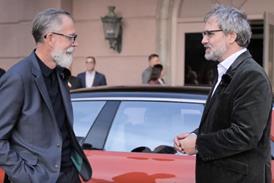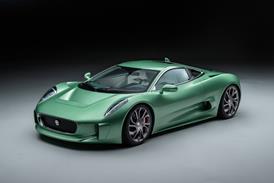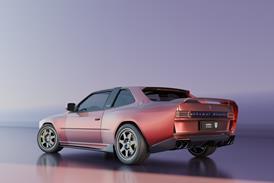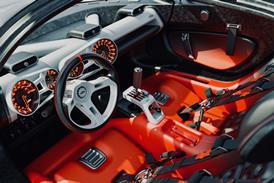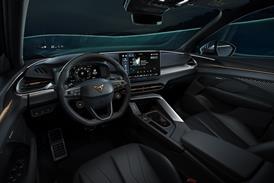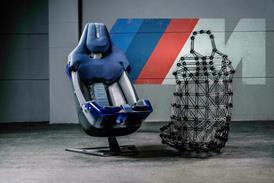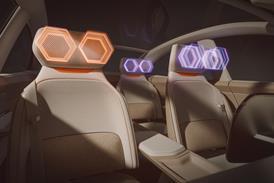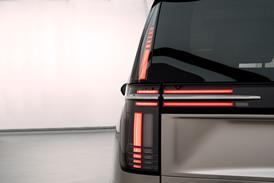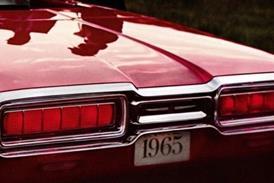October 31, 2002 - The deadline for entries to the RSA Student Design Awards, the UK’s premier student design competition is coming up soon.
Project briefs for 2002/03 include:
- Design a small, adaptable, practical vehicle, suitable for use in developing countries
- Design a system which makes the ATM a less rewarding, more risky place to steal cash
- Design the bathroom of the future for the average UK-sized bathroom of 1.8m, for use by all ages
- Devise a campaign to persuade people to watch less television
- Design footwear for the 2004 Olympic Games
- Design a range of food packaging for those who need to eat on the move
- Design an innovative toy that will become the next playground craze
- Design a living space that recreates the elegant club atmosphere of 1930s New York
For 2002/03, the competition spotlight is on sustainability. demi, an educational web resource attached to Goldsmiths College, will award £750 to a student who incorporates sustainability within their design in any of the briefs.
Briefs are grouped within five main themes
- 21st century living
- What we wear/where we live
- Our public spaces
- Design to include
- Getting the message
Inclusiveness again plays a key part for 2002/03. Students entering the Interior Design section, sponsored by The ADAPT Trust, are asked to design a club space that is both fully accessible and attractive to a ‘clubbing’ crowd. This ‘Ministry of Freedom’ must respect all disabilities, including sensory impairments.
Each year over 2,000 students enter the competition. With thirty briefs within twenty project areas covering almost every design discipline, the judges will be hoping to spot the design stars of the future. Winners from previous years include top fashion designers Markus Lupfer, Betty Jackson and Martin Kidman; Jonathan Ive, head of the Apple Computer industrial design team; and Andy Clark, designer of the new Heathrow Express train.
Prizes this year total more than £130,000, comprising of travel awards and work place attachments including the chance to work in Boston with Reebok or in Japan with Shiseido. New sponsors this year include ACI Worldwide, Ideal-Standard, Innovision Research & Technology, PDD and NCR.
The deadline for entries is 28 November 2002 with judging taking place January-March 2003. For more information on the design awards and registration go to: www.rsa-design.net. Awards will be announced at a ceremony in May 2003. Winning work will be on display in an exhibition travelling the UK.
The RSA Student Design Awards were established by the Royal Society for the encouragement of Arts, Manufactures and Commerce (RSA) in 1924. Each year over 2000 students from the UK and mainland Europe submit their designs for a wide variety of projects ranging from interior design to medical products, home furnishings to interactive media. Award-winning students are given the opportunity of work experience with the sponsoring companies or travel abroad.
With a mission to encourage creativity, innovation and good practice, the RSA seeks to educate and agitate for change in all its fields of interest: business, design, education, the arts and the environment. Visit the RSA website: www.theRSA.org

Rick.E-Car, 2001 winner Andrew Carter, University of Wales Institute, Cardiff
In last years RSA Student Design Awards Transport Design section, UK undergraduate design students tackled the problems of pollution, exclusion and bulk in producing sophisticated taxi cabs to satisfy future transport needs.
Ger Scullion and Luan Lawlor, National College of Art & Design, Dublin, designed the Neo-Victorian London Cab powered by electric motors. It can turn on the spot, by varying the speed of the front drive wheels, and the large diameter rear wheels provide a smooth ride. The driving seat is positioned high up at the back of the vehicle allowing the length of the cab to be kept to a minimum and affording the driver a good view of the road. Scullion and Lawlor won the Bugatti Trust Travel Award worth £1,500.
Robert Follet, Coventry University, was awarded the Ford Motor Company Limited Travel Award and the Bugatti Trust Travel Award for his fully automated, electrically-powered vehicle. Monitored from a central control room and deployed to the areas of greatest need, the cab features an hydraulic seat to help boarding passengers and even in-cab entertainment. When not in use the unit reduces in height and is stored underground in a stack system where it is cleaned and recharged.
Andrew Carter, University of Wales Institute, Cardiff, won the Ford Motor Company Limited Travel Award and the Bugatti Trust Travel Award, for his Rick.E-Car. The cab consists of two separate units, one for the driver and the other for two passengers, one of whom can be a wheelchair user. The units can be parked perpendicular to the kerb for convenient boarding and the large diameter rear drive wheels house the suspension and transmission, allowing the width of the vehicle to be kept to a minimum.
The Transport Design section was supported by the Bugatti Trust, Ford Motor Company Limited and Transport for London.



